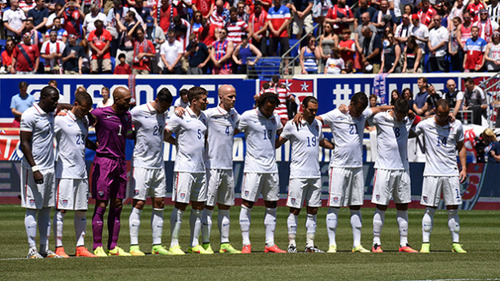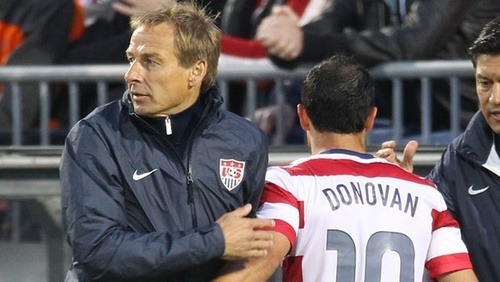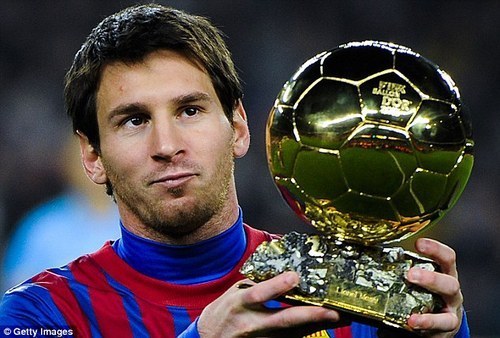#matt anderson

“There is only one god, and his name is Death. And there is only one thing we say to Death: ‘Not today.’”- Syrio Forel, Game of Thrones
The US Men’s National Team went into Group G, the Group of Death, and emerged as one of the living.
What’s amazing is that, by the end, any other result would have felt unfair and supremely disappointing. The World Cup so far has unfolded almost exactly as we hoped, ignoring the odds and instead plotting a delicate course in line with the United States’ wildest fantasies. The U.S. beat Ghana, tied Portugal and kept it close with Germany. That wasn’t supposed to happen, not all three at least, and with everything falling into place at the perfect moments.
And yet.
There is something about that last-gasp equalizer from Portugal that changed the collective national attitude from a gracious, “It would be huge to finish a close third” to a confident, “We deserve a spot in the knockout round.” If you told me at the beginning of the month that we’d claim four points going into the final match, I would’ve been ecstatic. Now, moments away from six but with no team safe, it didn’t seem quite fair. There were so many paths to success, if only heartbreak would quit lingering right around the corner.
America, you know now what it’s like to be a nation of true footballing fans. The ups, the downs, the nerves, the score checking, the math, the emotional toll of it all is a roller coaster that the rest of the world has ridden for years. Maybe I’m an optimist, but I feel like the public is all in on this team. There’s always been plenty of patriotic support rallying around the USMNT, but it seems now that the U.S. know the players and the game, and reveled in the nuances of one of the few sports that’s not perpetually focused on the boys out there repping America. It took until the 94th and final minute on Thursday, but the U.S. might finally have the diehard support it needs to build toward becoming a soccer power.
As for what actually happened on the pitch: the football was not stylish (it was never going to be against technically superior Portugal and Germany) but remained tactically sound. The U.S. kept their shape, defended well and benefited from a few well-timed strikes in a trio of matches that were otherwise slugfests. “This is going to be a World Cup of suffering,” Michael Bradley said, and the U.S. look like willing gluttons for punishment.

As we’ve said for months leading up to the World Cup, the USMNT’s depth is making the difference. The team’s counter-attacking style held up in the face of extreme temperatures and injuries, including the loss of Jozy Altidore. They’ve managed to adapt, subbing in fresh legs and tweaking the lineup just enough to gain a needed edge. And perhaps because of that depth and resiliency, the USMNT seem to believe in themselves more than ever.
In years past, that late score from Ghana would’ve sapped the fight right out of the U.S. Taking the lead on Portugal would’ve made the team more nervous than a cat in a room full of rocking chairs. An everything-on-the-line match with Germany would’ve prompted penalties and red cards. But the U.S. never panicked. They stuck to the game plan, standing toe to toe with some of the world’s best and refusing to blink. As America fell in love with them, they clawed their way into the round of 16.
The U.S. face even longer odds now. Beating Belgium will take perfection, and Argentina beyond them requires a miracle. But this is a team that can no longer be counted out. They’ve come this far, so why not just a little further? Why not one more match? Death can wait another day.
–
Matt Anderson is Began in ‘96’s Richmond correspondent. Find more of his writing at First and Den.

Previewing Team USA, its formidable pool-play opponents and the chances of moving onto the round of 16.
June 16, 2014 marks the start of the World Cup for the US Men’s National Team. This one ain’t going to be easy. If Qatar getting the World Cup in 2022 started speculation that FIFA hated the USA, ensuring the USA’s “random” draw into the deadliest Group of Death ever ended it with a resounding yes.
Just to recap the group: There’s Germany, currently second in the FIFA rankings and a favorite to win. The team is loaded with talent from front to back. Manuel Neuer is one of the best keepers on the planet; captain Phillipp Lahm is a defender/midfielder combo and a catalyst for Bayern Munich’s recent run of success; midfielder Bastain Schweinsteiger’s motor shows no signs of sputtering out as he enters his third World Cup; and the ageless Miroslav Klose sits on the brink of becoming the tournament’s all-time leading scorer.
Next there is Portugal, FIFA’s fourth-ranked team. The joke is that it’s not Portugal, it’s Cristiano Ronaldo and ten other guys. Unfortunately, that’s still a good team. Ronaldo’s backup is led by Pepe, who plays as if he were a Bond villain’s henchman (Given his red-card headbutt in Portugal’s opening match, it seems an apt comparison now more than ever). Joining him are Raul Meireles and Helder Postiga to round out a stable of experienced professionals with just enough left in the tank to make Portugal dangerous.
Lastly, there is the USMNT’s arch nemesis, Ghana. Don’t be fooled by Ghana’s 37th –place ranking. They have knocked the US out of the last two World Cups, and would love nothing more to seal the team’s fate from the start. Ghana don’t have a lot of well-known players, but Michael Essien and Asamoah Gyan command a steady and well-oiled offense. More importantly, their defense allowed just three goals during the qualifying campaign. Ghana are the only team that can’t match the US in talent, but their psychological edge should more than make up for it.

That leaves the odds stacked against this U.S. squad. But the national team is not completely out of it, especially with Jurgen Klinsmann at the helm. The German-born manager brings a total vision for the USMNT that expands beyond this tournament, an uncommon approach given that most are just happy with holding onto their job. As a result, Klinsmann made it clear that no one is safe. He cut all-time leading scorer Landon Donovan prior to the tournament, and raised some eyebrows last summer by tinkering with the US’s lineup. The squad responded with a 12-match winning streak that displayed unprecedented depth. That long bench will be crucial in Brazil, where they will play in arenas alternately described as 1) a rainforest, 2) a microwave oven and 3) Death Valley. Any success the USMNT hope to have will depend on how well they manage the constant rotation of players.
When you look at the 23-man roster, it’s hard to find a player on there that raises any serious doubts as far as skill. What does raise concerns (and why many questioned cutting Donovan) is the team’s overall lack of World Cup experience. The US will lean heavily on keeper Tim Howard, defender DeMarcus Beasley, midfielder Michael Bradley, forward Jozy Altidore and captain Clint Dempsey to provide the poise necessary to push through the group stage. They have all been there before and will need to step up to ensure this young team maximizes its potential.
From a tactical standpoint, the biggest worry is the defense. Howard will certainly keep them organized, but the four in front of him are very young and, at times, undisciplined. Fullback Geoff Cameron will shoulder the bulk of the responsibility as a kind of two-way defenseman, making the crucial decision as to when to help the attack without getting caught too far into the midfield on the counter-attack.
The midfield will go as Michael Bradley goes. He is the rock the attacking foundation is built on, and will be the point man in defending against Portugal and Germany’s quick strikes. Attacking options Mix Diskerud and Graham Zusi will depend on him to feed them the ball, while Jermaine Jones helps Bradley out on the back side.
As for an X factor, Julian Green fits the bill. Green grew up in Germany, and plays for powerhouse Bayern Munich. But when the son of an American father and German mother got the chance to choose his country, he sided with the U.S. That is a coup for Klinsmann, and signals the USMNT’s evolution into a respectable force on the world stage. Green is just 17, and still a work in progress. But he could provide added speed and energy off the bench.
The final grouping are the forwards. For once, the US goes into a World Cup knowing who will supply its goals. Jozy Altidore’s scoring performance in the USMNT’s final tune up game showed that his prior struggles were more a fluke than the norm. Clint Dempsey is perhaps the most reliable player on the squad, and will be counted on the split the defense with well-time passes. And there are even goals on the bench with this squad: Aron Johannsson has shown a nose for the net, and MLS veteran Chris Wondolowski is a pure finisher.
So what does all this mean? In any other year, you could say the USMNT have the talent and tactics to walk out of their group. But this year the draw went against them. It’s going to take a truly special performance and a bit of luck to get to the knockout round. More realistically, a successful campaign would be a win against Ghana and competitive matches with Portugal and Germany.
If you’re an optimist, however, here’s the likely scenario for advancing out of pool play: The US start with a convincing, multiple goal win against Ghana. Then, taking advantage of Cristiano Ronaldo’s supposed leg injury, a win or draw against Portugal. At this point, the US need to root for Germany to have beaten both Portugal and Ghana to secure a spot in the next round. A point then against a German side focused more on resting up would secure second place for the US.
That’s the most likely way to the last 16. But once the matches start, World Cup group stages have a tendency to throw in a few surprises. Starting tonight, we’ll just have to tune in and find out. And in the words of Ian Darke: Go Go USA!
–
Matt Anderson is Began in ‘96’s Richmond correspondent. Find more of his writing at First and Den.

On behalf of all Lionel Messi fans, a response to the prior article.
In response to Mr. Ricchiuiti’s preference for Cristiano Ronaldo (Ronaldo is actually the fat Brazilian who holds the record for goals scored in World Cup competition), I’d like to outline what in fact makes Messi the better player.
It’s a simple argument: Who would be your first pick if you were starting a team?
Messi is the obvious answer. All the man does is win. He’s led a decade for FC Barcelona that includes six La Liga titles, two Copa del Rey trophies, three Champions League titles and two Club World Cups. You can sprinkle in FIFA’s Ballon d'Or honoring the world’s most outstanding player, a personal award he’s received every year since 2009.
And don’t forgot about Argentina, which is always a favorite to win the World Cup. Cristiano Ronaldo and his Portugal side, meanwhile, just barely snuck into the tournament this year.
Messi wins and wins, and then wins some more, and that’s primarily because much of his time on the pitch is spent getting ready to score. Messi has 223 goals in 257 appearances for Barca, and holds records for the most goals in 1) a calendar year 2) a club season 3) a calendar year for a single club and 4) a European Cup.* Those goals have won him myriad awards en route to becoming the top scorer in Barca’s long history.
* Also of note, in case you’re curious: Most Champions league hat tricks, most goals in a Champions League game and most consecutive league matches with a goal. Messi is the only player to score consecutively against all the teams in his league and to score in 20 different cities in the European Cup.
The touches that don’t end with a ball immediately in the back of the net often set teammates up for a score of their own; Messi is a brilliant passer who has led Barca in assists.
Cristiano Ronaldo’s game is built on power and pizzazz. Messi is more pragmatic, more artistic. He flows through defenses, finding seemingly the tiniest space to skip through, or slot a pass or fire off a shot. He is more effective, and at the same time more mesmerizing than his Real Madrid counterpart.
So you can have Cristiano Ronaldo and all his flash. I prefer substance to my superstar. I want someone who will make my team the best, not just the prettiest.
–
Matt Anderson is Began in ‘96’s Richmond correspondent. Find more of his writing at First and Den.

Why one fantasy footballer left the game, and is better off for it.
It’s that time of year: the pads are popping, ESPN is freaking out about something involving the Jets and Richmond is in a frenzy over the Redskins.
Football is back, and along with it, its ever-present companion fantasy football. I’d offer you advice on who to start and who to sit, but I don’t play fantasy football. Shocking, I know, especially since I sit smack-dab in the middle of the target demographic: sports-obsessed 20-somethings. But it’s true. I don’t, and I haven’t since high school.
There are a couple of reasons why I’m anti-fantasy football. The first is that I’m terrible at it. I admit, my lack of skill colors my opinion. Year after year, I drafted players coming off monster seasons only to watch them tear an ACL in week two. That poor judgment often extended far past the draft, where each Sunday my bench players always seemed to outscore my starters.
But games can typically still be fun, even if you’re no good at them. The overriding reason why I’ve sworn off fantasy football is because I didn’t like how it turned me against my own team.
I’m a Redskins fan, and a passionate one at that. And that passion created a real dilemma when it came time to draft my own team. I could choose all Redskins players, which is plainly a colossal mistake even if they’re halfway decent (which isn’t often). Or I could draft those I thought would have good years, which inevitably pitted me against the ‘Skins throughout the season.
During my playing days, I’d find myself saying ridiculous things like, “I want the Redskins to win, but Donovan McNabb has to throw for 300 yards and a couple of touchdowns.” More likely is that I’d get one or the other, and rooting against the Redskins — my real team — just felt wrong.
So I made a change. I sacrificed fantasy football for peace of mind, and now I enjoy the Redskins without any nagging regrets. I can flip on a random game and root for the best story or a favorite player, not the guy I begrudgingly drafted just because he puts up numbers. It’s freeing, being untethered from roster changes and proposed trades and last-minute injury reports.
The rollercoaster of rooting for just one professional football team is stressful enough. Being a fantasy football fan on top of that was one burden too many.
–
Matt Anderson is Began in '96's Richmond correspondent. Find more of his writing at First and Den.

Began in ‘96’s two soccer experts offer their thoughts on the World Cup-bound U.S. Men’s National Team.
The World Cup: An expectation fulfilled
As the match’s 94th minute approached, Mexican midfielder Jesus Zavala carelessly dragged down Clint Dempsey. Zavala’s eyes seemed to protest the call, but his body language betrayed a player who had all but given up. It turns out Zavala got the memo late; the rest of his team had given up 60 minutes earlier.
Dempsey approached the resulting penalty shot anyway and sprayed it wide, as if some mysterious wind carried the ball away to preserve the “dos a cero” score line that has plagued so many of Mexico’s previous encounters with the U.S.
Nevertheless, when the final whistle blew in Columbus, Ohio, and the U.S. Men’s team celebrated their win, manager Jurgen Klinsmann looked a man content. His side had dispatched a poor, yet full-strength Mexico at home, riding the inspired crowd all the way to victory. And he had done it without Jozy Altidore, Michael Bradley and Geoff Cameron, his three steadiest players. It was further testament to Klinsmann’s long-term emphasis on depth and flexibility, one that involved employing 47 different players over 19 World Cup qualifiers, international friendlies and Gold Cup matches. The U.S. now boast the largest player pool they have ever seen.
The win propelled the men’s team to 13th in the FIFA World Ranking, placing them above such teams as England and Chile. The ranking is certainly misleading to a degree. But unlike its fourth-place position leading up to the 2006 World Cup, the U.S. have earned their spot through stout defensive play and a string of victories over respectable squads like Mexico and Italy.
What will push them higher is an offense that is blossoming under Klinsmann. Altidore, Landon Donovan, Graham Zusi and newcomer Aaron Johnson form an attacking corps capable of much more damage than their predecessors. Throw in the European experience gained by players like Bradley, Cameron, Fabian Johnson and John Anthony Brooks, and this squad is far more talented and experienced. Most will be full-time starters with their respective clubs, ensuring that they enter the summer at the tops of their games.
They will need to, given what comes next. A World Cup birth to this team is less an achievement than fulfilled expectation, and it has so far gone according to plan. Klinsmann and the U.S. now face the opportunity to show how far American soccer has moved forward. And really, it has always been about moving forward.

Klinsmann’s masterful turnaround
The U.S. Men’s National Team punched its ticket to the World Cup this past week with a solid 2-0 win over rival Mexico, providing the perfect moment to reflect on Jurgen Klinsmann’s nearly two-year reign.
The 49-year-old German replaced Bob Bradley in 2011, bringing with him the promise of an attacking, flowing game underpinned by a consistent strategy. It was a departure from his predecessor’s one-game-at-a-time philosophy, an approach that bred familiarity and experience but left the national team thin on depth. As the U.S.’s core players aged out of their prime, there were few able and ready to take their place.
Klinsmann set out to change all that. He promised the same general approach game in and game out, but ensured that there was always a plan B. Every player had to re-earn their spot, and even stars Landon Donovan and Jozy Altidore found themselves dropped from the squad at various points. Through it all, Klinsmann methodically assembled vast ranks of players who would aid the U.S. over the next couple years and further into the future.
That long-term vision got in the way of early success: the U.S. team went 1-1-4 in Klinsmann’s first six matches. But the tide gradually turned, and soon he had signature wins over Italy (in Italy) and Mexico (in Mexico’s dreaded Azteca Stadium) under his belt. Then the U.S. withstood a blizzard to beat Costa Rica, and then reeled off 12 wins in a row en route to a 13-2 record, and eventually lingering doubts about Klinsmann’s grand vision evaporated. The team now heads to the World Cup as strong and as deep as it has in years, and perhaps ever.
At the core of that success are Klinsmann’s subtler accomplishments. He’s figured out how to get Altidore scoring consistently, something no other USMNT coach could do. The 23-year-old found the back of the net in five consecutive matches, and seven times in 10 contests.
Also revitalized are Donovan and Eddie Johnson, even as they drift closer to the end of their careers than the midpoint. Much of that lies in Klinsmann’s more forward-thinking tactics. The U.S.’s freer style allows it to score on the build-up, counter and against the run of play. And thanks to the the squad’s newfound depth, it has found scoring sources from a variety of starters and subs. Klinsmann even trotted out what was essentially the U.S. B team during the Gold Cup, and went on to win it all.
It is a transformation of the national team that has grown soccer’s reputation and visibility both among players and fans. Jermaine Jones, Fabian Johnson and Mix Diskerud, among others, could have played for other national teams. Instead, they joined the U.S. More MLS players are being funneled into the system, and Klinsmann’s policy of playing the best players — no matter their popularity — raised the level of play for all those involved.
And when those players run out onto the pitch, they do so to a packed house. Fans sing and chant, and follow the squad into enemy territory like Azteca. That would have been unthinkable just a few years ago. But the U.S. now plays attractive, winning soccer, and has so far reaped the rewards.
Of course, the main test is the World Cup. Klinsmann and the U.S. built unprecedented momentum thanks to a brilliant summer, and the spotlight now promises to be even brighter a year from now. Whether the U.S. can withstand that heat is the true test of the Klinsmann era.
–
Zach Ricchiuti is a contributor and resident soccer expert for Began in '96. Matt Anderson is Began in '96's Richmond correspondent. Find more of his writing at First and Den.

